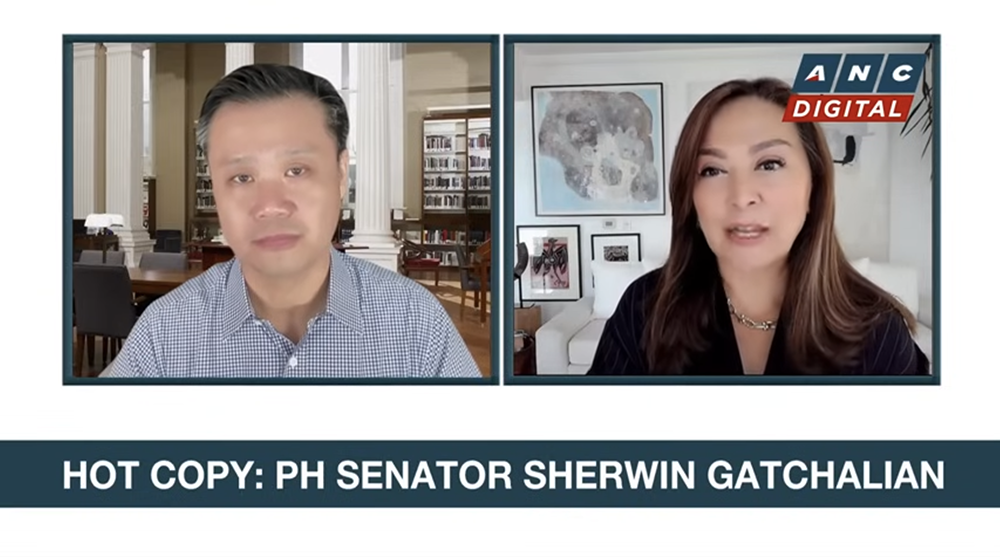In an interview, Senator Win Gatchalian expressed concern over Philippine banks' potential non-compliance with the Anti-Money Laundering Act (AMLA). His call to investigate banks' adherence to AML regulations underscores a critical issue: ensuring bad actors do not exploit the financial sector for illicit activities. The transfer of nearly ₱2 billion to multiple accounts linked to controversial activities, without any reports to the Anti-Money Laundering Council (AMLC), raises serious questions about the robustness of existing checks and balances in the banking sector.

“We don't want to be a haven for money laundering because people can get away with depositing illicit money and not being reported,” Gatchalian said. “We have to make sure that the anti-money laundering law is being operationalized properly and the provisions of the law is being complied with [by] all actors, whether banks government, but we have to make sure the compliance of that law.”
Why Probing is Necessary
Gatchalian's proposal to probe banks stems from alarming evidence suggesting that financial institutions may have failed to report large transactions associated with POGO (Philippine Offshore Gaming Operators) activities. In the case of Alice Guo Hua Ping, a key figure linked to illegal POGO hubs, vast sums of money—up to ₱7 billion—were deposited in Philippine banks without triggering alerts or reports to the AMLC. This kind of oversight points to potential gaps in the compliance processes that allow suspicious funds to flow unchecked through the system.
AMLA mandates that 'covered persons,' such as banks, report suspicious transactions to prevent these activities. However, the current situation highlights a discrepancy between regulatory requirements and actual practice. Suppose banks fail to detect or report such transactions. In that case, they essentially become facilitators of money laundering—a scenario the Philippines cannot afford, especially given the country's ongoing efforts to maintain its standing with international regulatory bodies like the Financial Action Task Force (FATF).
Read: Senator Win Gatchalian's Interview on ANC's Headstart with Karen Davila on Guo Hua Ping
The Role of Banks in AML Compliance
Banks play a critical role in ensuring the integrity of the financial system. Under AMLA, they must report any transaction exceeding ₱500,000 within a day and flag any suspicious transactions, regardless of the amount. Guo Hua Ping and her associates transferred large sums of money without raising red flags.
This failure highlights a crucial need for stricter oversight. If banks fail to report these funds, the probe could reveal systemic issues—technological or operational—if they do so. Banks have the tools and responsibility to detect such irregularities, so we must not take any negligence lightly.
UCheck: A Tool for Improved Compliance
One solution that could bolster banks' AML compliance efforts is using innovative tools like UCheck. UCheck is a name-check tool designed to help financial institutions quickly verify identities and flag suspicious individuals or entities. Since many AML violations involve inadequate due diligence, tools like UCheck could enhance banks' ability to detect suspicious transactions in real-time. This would streamline the compliance process and reduce the likelihood of banks unwittingly facilitating illegal activities.
By leveraging such technologies, banks can ensure they meet their obligations under AMLA, safeguarding the financial system's integrity.
Financial Institutions Must Take Action
All financial institutions—not just banks—must step up their vigilance against money laundering. This includes insurance companies, securities dealers, remittance agents, and foreign exchange businesses, all of which are also considered "covered persons" under AMLA. These institutions must continuously improve their monitoring systems and ensure strict compliance with reporting requirements. Tools like UCheck empower these organizations to detect suspicious activities swiftly and accurately.
Why Non-Compliance Should Not Be Tolerated
Non-compliance with AMLA has broader implications for the country. The Philippines has worked diligently to align with international standards, particularly under the FATF, which closely monitors countries for potential money-laundering risks. Failing to comply with AML regulations could place the Philippines on FATF's grey list, leading to far-reaching consequences for the country's financial sector. Being on the grey list makes it more difficult for the country to do business internationally, as foreign banks and financial institutions will likely impose stricter scrutiny on transactions involving the Philippines.
Moreover, failing to probe banks for AML compliance opens the door for more illegal activities, such as drug trafficking, terrorism financing, and human trafficking—all of which rely on the ability to launder money through legitimate channels. Without thorough investigations and consistent enforcement of AML regulations, the Philippines risks becoming a haven for such activities.
A Step Towards Greater Accountability
Senator Gatchalian's call for an investigation is about holding banks accountable and safeguarding the country's financial infrastructure. If unchecked, non-compliance with AML regulations could seriously undermine the Philippines' economic stability and international reputation. The Senator's initiative and the deployment of tools like UCheck represent a step toward greater transparency and accountability in the financial sector.
Banks must prioritize AML compliance as a legal requirement and a commitment to ensuring the Philippines does not become a playground for illicit activities. The ongoing probe will hopefully shine a light on the areas where banks are falling short and provide the impetus for much-needed reforms in AML compliance.
Conclusion
We should take Senator Win Gatchalian's suggestion to probe banks for AML non-compliance seriously. As revealed in recent cases, potential lapses in the financial system underscore the urgent need for more robust monitoring and reporting mechanisms. Tools like UCheck can enhance banks' capacity to comply with AMLA, but a solid commitment to following these regulations is essential. The country's financial integrity depends on it.


